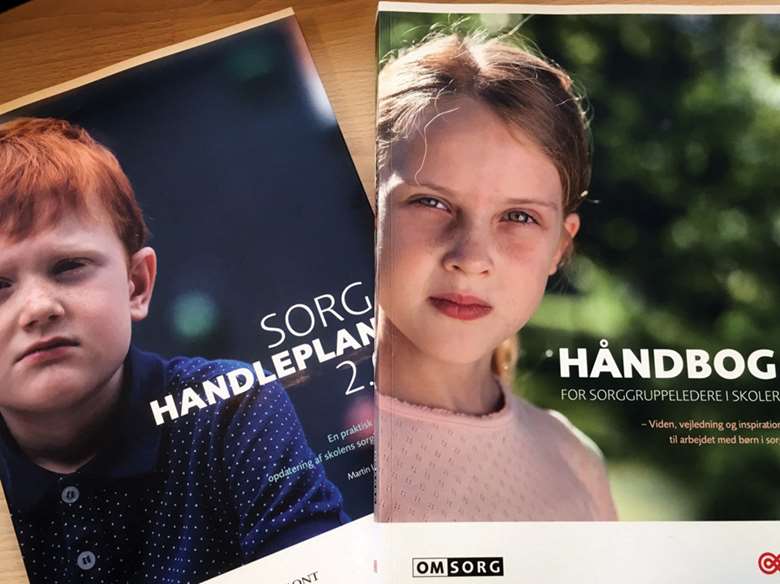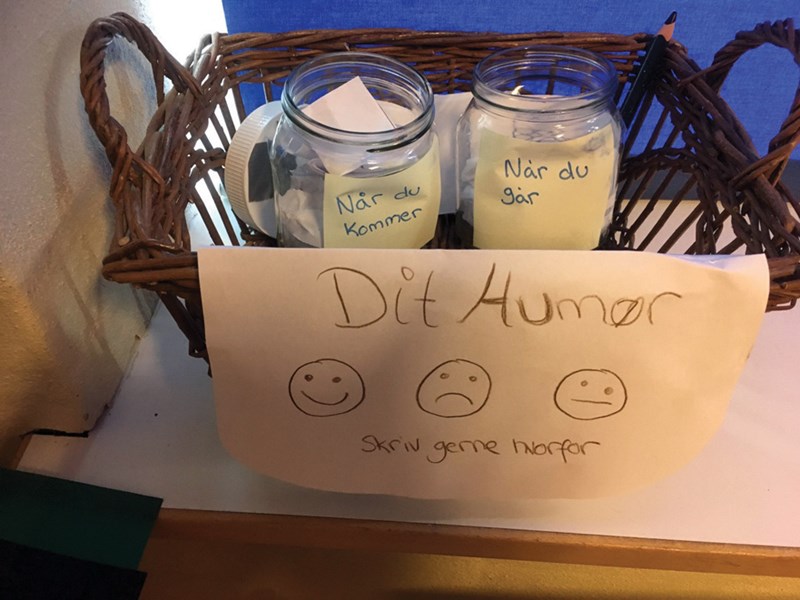Bereavement support for children with SEND, Denmark
Sarah Helton
Tuesday, April 27, 2021
Sarah Helton visited Denmark in 2018 as part of a study trip to assess best practice approaches for supporting children with special educational needs and/or disabilities who are bereaved.

CYP Now has teamed up with the Churchill Fellowship to publish a series of articles summarising key findings from studies undertaken worldwide by Churchill fellows (see below). This is an abridged version of Best Practice for Supporting Bereaved Children Who Have Special Educational Needs and/or Disabilities by Sarah Helton, a specialist SEND teacher.
UK CONTEXT
In the UK, there is a lack of understanding as to how and why children with special educational needs and/or disabilities (SEND) should be supported with bereavement. I believe that all children are affected by the death of someone close to them and therefore children with SEND should – just like children without SEND – have emotional support and guidance to help them manage their grief.
The reason, I believe, that adults are especially uncomfortable about talking about death with children with SEND is because they believe these children have enough to cope with their learning and/or physical disabilities. Children with SEND are in fact more likely to experience bereavement at a younger age and in greater frequency than neuro-typical children due to the nature of the medical conditions that some children in special education have. Yet teachers in the UK rarely have training in how to support children with bereavement and grief.
Another factor I believe that impacts the lack of child bereavement awareness and support in schools is that they are not required to have a bereavement policy. In fact, when contacting schools about the bereavement and grief training I provide, I have had a number of schools state “We don’t have any bereavement issues” and “We don’t deal with death”.
Data shows that in the UK a parent of a child under 18 dies every 22 minutes; around 23,600 a year – while in 2017, 7,653 under-18s died – that’s 21 every day.
Covid-19 has meant that we are all more aware of death and greater numbers of children (included those with SEND) have been impacted by a bereavement. Even more reason to ensure bereavement support is available to all and inclusive in its delivery.
BEREAVEMENT RESPONSE
Denmark was the first country I visited – followed by Norway and the USA, findings from which are covered in the report – where I spent time meeting many of the individuals and organisations who were architects of Danish child bereavement work: Kræftens Bekæmpelse, Børn, Unge & Sorg, Jes Dige, Per Bøge and Martin Lyte.
Denmark has one of the highest implementation rates of bereavement support in schools in the world. In recent years, a wealth of research has been carried out looking into the effectiveness of the Danish Bereavement Response – particularly in terms of how successful the bereavement plans have been in supporting bereaved children, their teachers and schools as a whole.
A key finding of the research was that it showed teachers were more confident discussing death and bereavement with their students as a result of having the Danish Bereavement Response.
The Bereavement Response document for schools has recently been revised and training for teachers and schools has been updated. Measures include:
- Ensure bereaved students are involved in the development of their own bereavement plans (B-plans)
- Ensure plans are regularly updated
- Details of what the Danish Bereavement Response covers
- Details of who is bereaved, for example name, age, class, teacher, family details
- Overview of the bereavement (for example who died, when and how)
- Details of when the funeral will take place, when the child will return to school and who will be the person who meets them and supports them on their return
- Language that the child wishes for teachers, peers etc to use
- Support that will be in place for the student (for example attendance of bi-weekly bereavement groups (B-groups), and who to go to if they are in crisis – in some schools this may also include attendance of regular B-groups).
SCHOOL APPROACHES
Each school tailors its response to individual students’ needs. B-plans run from the point that the school is made aware of a severe illness or of a death. The plan is broken down into three sections:
- Pre-response (if appropriate) – When the school is aware that a death is imminent. During this period the school will work with the student on pre-bereavement advice, activities and support.
- Emergency Response – This extends from the point of the death through to the funeral. This section of the plan is about the practicalities (for example who the family point of contact is for the bereaved student, when the child will and won’t be attending school)
- Post-response – This phase of starts after the funeral and covers the return to school as well as the initial days, weeks and months following the return. It is then ongoing.
B-plans are typically reviewed at three, six and 12 months and then annually. It is understood by all that a plan is in place for the length of the student’s school life – unless the child wishes for it to cease.
With 96 per cent of schools in Denmark using B-plans, my first thought was they must be a statutory requirement to achieve such a high implementation rate. This, however, is not the case. The high take up seems to be as a result of schools seeing the positive impact of having such plans.
B-GROUPS
Bereavement groups or B-groups are an addition to bereavement plans that some schools have successfully introduced. Children generally attend for six to eight sessions but attendance can be as long as they need. Typically 8-12 children are in a group. Sessions tend to take place every other week to allow time for reflection between sessions. The leader of the B-group meets with the child and their parent(s) before the child starts attending the group.
If an individual is struggling then a one-to-one chat takes place, along with conversations with other teachers and family members as necessary. This allows the B-group leader to see how the child is coping in different settings. If required, the student will be referred to clinicians.
Sessions involve activities to develop emotional understanding, building an understanding of death, bereavement and grief, supporting children to find activities and strategies that relax and calm them, developing a support network of friends.

HEART ROOM
Søllested Skole (Søllested School), Lolland, has been running bereavement plans and groups for several years. There are two bereavement groups, one for the older students and one for the younger students. The school has also created a “heart room”, a small space that they have managed to carve out in this over-stretched school. The room is a place that any child can come to if they are in need of respite or solitude. One of the incredible things about the heart room is that it is overseen by older students in the school: children who have “graduated” from the B-groups, but continue to see the benefit of the work and want to help others.
Children who use the heart room are encouraged to fill-in a slip of paper to say how they feel on entering. This can be a few words or a picture. They are also encouraged to do the same upon leaving. Most children do this. Data shows the overwhelming majority of students who use the heart room feel better after spending time in it. For some grieving children who have recently come back to school following a bereavement, they need to use the room for a nap. For others who are feeling overwhelmed by their emotions, they may need time doing some colouring or listening to music.
PUPILS WITH SEND
Denmark has a strong inclusion movement and most children with SEND attend their local school. These local schools often have a special class to support the children with SEND. And depending on the needs of the students with SEND, they are either educated with their peers (with support as necessary) or in a specialist class or using a combination of these options.
There are some special schools in Denmark, but proportionately much less than in the UK. Danish special schools are for children with the severest forms of learning and physical disabilities. From talking to the various organisations, individuals, schools and teachers during my time in Denmark, it was agreed by all that although the country is doing great work with bereaved children, bereaved children with SEND are a forgotten group. Although there are some bereaved children with SEND who receive support and counselling (with some of these students also attending B-Groups at their schools), they are very much in the minority. Everyone agreed these students need to be looked after in the future and included in the overall planning and support that bereaved children in Denmark receive. There was also a consensus that this needed to be part of future research and planning.
IMPLICATIONS FOR THE UK
Danish schools endeavour to deliver a high level of support to bereaved children, but like the UK, Denmark hasn’t yet fully understood the needs of grieving children with SEND and implemented strategies to support their needs.
Although I did not see the best practice I had hoped for in supporting bereaved children with SEND in Denmark, I did see many excellent practices in the country that are currently being used with typically developing children. These practices were:
- Schools implementing B-plans for all bereaved children
- Schools running regular B-groups to support and counsel grieving children
I would welcome the introduction of both of these practices in the UK for all bereaved children in all schools. This would ensure the needs of bereaved children with SEND are being met.
ABOUT THE CHURCHILL FELLOWSHIP
The Churchill Fellowship is a national network of 3,800 inspiring individuals whose mission is to find the world’s best solutions for the UK’s current challenges.
Up to 150 Churchill Fellows are funded each year to visit the world’s leading practitioners and projects on a topic of their choice – from social policy to healthcare to education and more – and bring back new ideas for their communities and sectors across the UK.
Any UK adult citizen can apply, regardless of qualifications, background or age. Fellows are chosen for their potential as change-makers, not their past track record or status.
Find out about fellows and their ideas at www.wcmt.org.uk.




